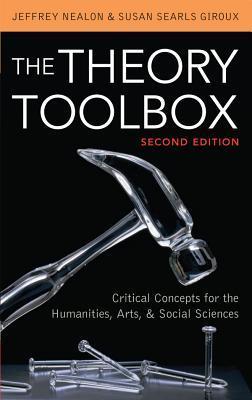What do you think?
Rate this book


290 pages, Kindle Edition
First published January 1, 2003
I was looking for something which could help me express my thoughts during times I'm deeply thinking about he world around me: words, ideas, concepts; so I picked this up, along with Raymond William's Keywords: A Vocabulary of Culture and Society, a kind of critical theory dictionary with the history / evolution of the words. I'm guessing William's suits my need better. [Update: William's book did not suit my needs better.]
It turns out this is more of an introduction to standard social / cultural concepts that everyone should know, but surely doesn't, which makes this book perhaps one of the most important books, because, you know, it's about accessibility: educating the common people. This kind of book should be updated as society progresses. Even I don't know what Zizek is talking about at times, though at least he tries to make it accessible.
This book has its roots firmly in the classroom— specifically, in the “introduction to theory” course at Penn State.
- "Acknowledgements", first sentence
Ive recently happened to be stuck near a library, and desiring to travel, tried digging into cultures of ancient societies, it being the first time to really read anything about history, learning by doing, swathing through the horribly insular world of books, which increases in insularity as one goes further back in time (you know, the things that came from uncritical, privledged Western elite schools' publishing presses). Anyway, this recent awful experience lead to many thoughts about history, of which the book has an excellent chapter on; of what a history is (thankfully not just limited to the written medium), the job of the historian, political and social history (though they avoid using such terms), etc. The exposition goes deep yet is absolutely lucid. It's as dense as a good critical theorist's writings, yet it provides simple everyday contemporary life examples. I was happy that he invoked the Benjamin to describe how to capture history, ~trying to capture the image that flashes up...."If past events are available only as images, not as stories, then they must be constructed as such.", and so on.
Though this is a book on theory, there isn't any bullshit in it because the concepts are limited to the basics; It's not an inquiry into the social world. In limiting its scope, it successfully avoids the trappings of theory writers.
I'm not sure if I'll need to read much of the book, because much of the content is (should be) common-sense [a few chapters]: differences (in class, sex, race, etc.), post-colonialism, reading, subjectivity, culture, ideology. I'll definitely read the chapter on biopower and postmodernism. But because the chapter on history was so well-written, I feel I may in the future want to read the concepts that I already understand, just as one may want read an ethical treatise: in fact, this may just be my (anti-) Enchiridion